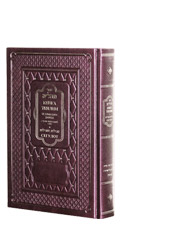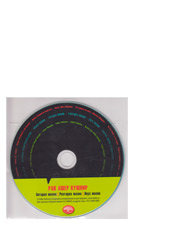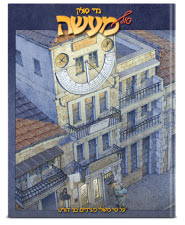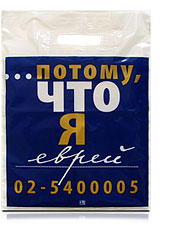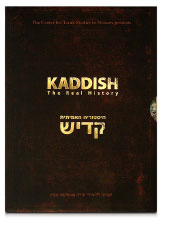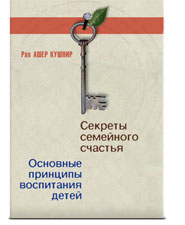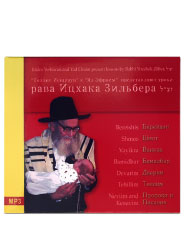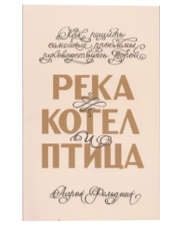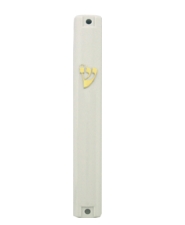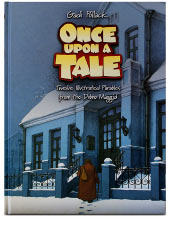
The Kiruv Kollelim of Toldos Yeshurun
Around the world, evening kollelim guarantee constant Torah learning. From coast to coast in 20 cities in Israel, the evening kollelim of Toldos Yeshurun maintain the voice of Torah; however, the sounds of Torah learning emanating from these are indeed unique.
The language spoken is predominately Russian, and the learners are Russian beginners, learning about Torah and Mitzvos, b’chavrusah—in one on one partners—with Russian speaking avreichim.
The Toldos Yeshurun organization was founded in 2000 under the direction of Rav Yitzchok Zilber zt"l and the initiative of Gedolei Yisroel—Rav Eliyashiv, Rav Steinman, Rav Kanievsky, Rav Auerbach shlit"a—with the guiding principle that Russian speaking Bnei Torah could successfully reach out to their nonreligious brethren because of their common language and cultural background.
According to Avraham Cohen, director of Toldos Yeshurun, Russian immigrants-many of whom are university educated—still find it difficult to advance in yiddishkeit via general Hebrew shiurim owing to both the language barrier and the disparity between them and the rest of the class and teacher in levels of knowledge and background. Toldos Yeshurun’s unique approach of offering Russian speaking chavrusos—one on one mentors—in the setting of an evening night kollel, is the answer to both of these concerns: The combination of one-on-one mentoring—the proven, most effective means to advancement—and the camarederie of sharing a common language and cultural background despite differences in religious affiliation, is the key to hundreds of success stories.
Success breeds success. Today—in the span of only six years since Toldos Yeshurun’s inception—virtually every big city in Israel with a significant Russian population hosts a Toldos Yeshurun kollel which embraces this unique learning approach. Branches are found in the cities of Ariel, Ashkelon, Ashdod, Beer Sheva, Beit Shemesh, Bnei Brak, Brachfeld, Hadera, Haifa enachem, Ramot, Talpiot, Kiryat Ata, Maale Adumim, Modiin, Naharia, Netivot, Petach Tikva, Rishon Letzion, Tel Aviv, Tel Tzion and Tekoa. And that’s not counting Jerusalem’s multiple locations in the neighborhoods of Bayit Vegan, Beit Yisrael, Gilo, Nive Yaakov, Ramot, Sanhedria Murchevet and Talpiot.
Additionally, many of the branches have burgeoned into mini-organizations of their own by following Toldos Yeshurun’s lead. Three leaders who have founded very successful programs of their own are: Rabbi Naftali Katzman in Netanya; Rabbi Yosef Zarudinsky in Kiryat Sefer; and Rabbi Michael Gochberg in Gilo.
“ When we opened the first kollel here in Jerusalem, five chavrusos came on the first evening. We had five Russian speaking avreichim and five students", says Rav Bentzion Zilber shlit"a, today’s spiritual leader of Toldos Yeshurun, who, upon the death of his father, Rav Yitzchok Zilber zt”l in 2004, was asked by Rav Elyashiv to continue his father's holy work.
"But in only a matter of months, we had many times more chavrusos, and in a year, on the initiative of Rav Avraham Cohen, we began opening such kollelim in other places.”
Says Avraham Cohen, director of Toldos Yeshurun, "Outstanding Russian speaking avreichim who had already learned in the best Israeli yeshivos for 10-12 years, came to us to teach in the evenings. When they saw how important it is to quench their brothers' thirst for Torah, they developed a taste for kiruv, spurring them to open more kollelim in different locations. In this way, this first kollel became a greenhouse that taught more people to create similar programs in other cities. This chain reaction still continues now."
The Toldos Yeshurun Kiruv Kollel convenes during evenings so that a working or studying person can join and get a chavrusa for learning Talmud or other texts. Classes are held two nights a week in some locations, five nights a week in others.
About 350 Russian speaking avreichim and Rabbanim teach in these kollelim, for whom this evening activity is a significant source of income that enables them to continue learning in a regular kollel during the day—and additionally, also means self-realization.
"I learn Torah all day in kollel," says Aryeh Greenberg, "but in my mind, I see my student's eyes waiting for me, thirsting for Torah. I think that my own studies would be much less enriched without this opportunity to teach and give over Torah to other people.”
To date, some twelve hundred Jews from the former Soviet Union on beginner’s level, learn in these institutions.
“One of the keys to each kollel’s success is that the system is horizontal rather than vertical,” says Avraham Cohen, Toldos Yeshurun’s director. “Every kollel raises part of their own budget, and in this way, the directors of each program feel that they are completely responsible for decision-making in their particular institution.”
"From the example of our institution that unites many Russians speaking learning programs in Israel,” continues Avraham Cohen, "we can see how capitalism is winning against socialism. What do I mean? The effectiveness of the work of even a Torah teacher, when he knows that this is "his" place and everything depends on him—and he is not just being paid by some organization—his motivation to work is much higher than that of a person who just came to earn money.”
In fact, there is more need for such teachers and places of learning than Toldos Yeshurun can currently fill. There are completely "Russian" cities with no Russian speaking Bnei Torah, and both distance and the costliness of the transportation, make it difficult for teachers to be brought there.
“These young Russian Bnei Torah effected a real Russian revolution,” says Rav Eliezer Rozner, director of the Wolfson Foundation in Eretz Yisroel.
“I have been working in the area of kiruv in Eretz Yisroel for more than 30 years, and we all know perfectly well that it is the most difficult task to bring Russian Jews to teshuvah. It is a real miracle that for many years, many organizations and donors invested so much effort to build a Russian speaking religious community, and thanks to all these efforts, there are now about 500-600 Russian speaking families of young avreichim in Eretz Yisroel. Now these young Bnei Torah took this matter into their hands and I see how hundreds and hundreds of Jews from the former Soviet Union come to Torah, thanks to Toldos Yeshurun.”
Achieving impressive results
One of the central principles of Toldos Yeshurun’s work is that the learning is one-on-one. Through personal example and warm friendship, they achieve impressive results: Thousands of Yidden returning to Yiddishkeit, in communities far and wide, one Russian Jew at a time.
Neve Yakov is one of many neighborhoods in Jerusalem with a large concentration of Russian speaking families who exhibit an interest in Jewish tradition. The Toldos Yeshurun Kiruv Kollel there has 15-20 students attending on a daily basis. The local Bais Yaakov School building is the home of the kollel and is also where the daily tefillos take place, with a minyan on Shabbos and the Holidays. In addition to chavrusa—one on one—learning, there is a beginner’s class on kashrus, a separate class for women on the laws and meaning of the prayers, and a Bar-Mitzvah preparation class for boys.
Bentzion—formerly Alexander—Tschernichovsky, is one promising Neve Yakov student who’s turned his life around. “When I first came to the classes, I was immediately taken with the warm and friendly atmosphere of the classes. I began to study in earnest and by May of that year I had my Bris Mila, and received a new name, Bentzion, meaning “son of Zion”. Now I try to spend as much time studying as possible.”
The students in the Kollel also stay in touch outside the classroom. “We pray together and get together to celebrate Shabbat and Holidays,” says Bentzion. “What unites us is the common passion to learn Torah and keep the Mitzvos. I wish that more people would come closer to our tradition, that our community will expand and that all of our Jewish brethren will return to their roots.”
While Bnei-Brak may be called the "religious capital of Israel," nevertheless the Toldos Yeshurun Kollel branch proved to be extremely beneficial to many Russian olim there, who considered themselves almost ultra- orthodox, yet—with no yeshiva background—lacked pivotal, fundamental knowledge about Yiddishkeit .
The centrality of Bnei-Brak—situated in the center of Tel Aviv—affords many the opportunity to learn. In fact, people come from Tel Aviv, Petach Tikvah, and even from Ariel, located in Samaria. The kollel includes young people as well as seniors, and the working public—mostly computer programmers, and even a former music school principal.
Classes are held three nights a week, where in addition to the chavrusa learning style embraced by all of Toldos Yeshurun Kollel branches, prominent lecturers Rabbi Asaf-Simcha Friedman, Rabbi Simcha Ackerman, and Rabbi Raziel Minke, give classes on Talmud, Hilchos Shabbos and Parshas Hashavua respectively.
As far south as Dimona, (the desert city that’s home to Israel’s famous nuclear reactor) Toldos Yeshurun’s influence reverberates-and in fact comes full circle—with the young Russian Rabbi Raphael Moshayev.
Rabbi Raphael’s story began like many others in Dimona; he was the son of non observant immigrants from Uzbekistan who had settled in Dimona. He credits his father—who although distanced from Judaism—had sought a Jewish education for him.
Thus, Raphael became a student at Rabbi Shmuel Eliyashev’s Yeshivat Shaarei Tzion, with his entire family following his lead in observing commandments. After many years Raphael—now Rabbi Raphael—returned to Dimona, as the Rabbi of the Bukharian community, and subsequently the leader of the Toldos Yeshurun Kollel. Rabbi Raphael’s teacher and mentor, Rabbi Shmuel Elishayev, in his earlier years in Russia, had studied with Rav Yitzchak Zilber zt”l, founder of Toldos Yeshurun. Now the community hosts a Toldos Yeshurun kollel whose Rabbi was taught by the student of its founder.
Rabbi Raphael has been able to achieve what many others failed. “When I arrived, the maximum I could accomplish was to give a weekly lesson on Shabbat; today there are daily lessons, which many young people attend.”
Inspiration to create a spiritual home
Numerous and sundry stories abound of families who—as a result of joining Toldos Yeshurun programs with separate groups for both men and women—quickly worked their way up from no knowledge and observance to a full-fledged chareidi lifestyle.
Some, like the Donievskys of Ma’aleh Amos, even found themselves moving to more religious neighborhoods. When asked what it’s like to leave behind a house and move to a simpler rental property, Mrs. Donievsky answered, “The house we left behind in Tekoa is nothing compared to building our spiritual house here in Ma’aleh Amos!”
The kollel instructors, by virtue of simply being themselves, make a great impact. As explained by Mrs. Donievsky, it’s the little things: how they come in to the shul, how they dress with dignity, how they use every minute. And, of course, their midos.
“They come with no airs, yet with much depth,” Mrs. Donievsky states. “They are tranquil and content, and brimming with Ahavas Yisroel and Mesiras nefesh to share with others.” All of these things teach by example rather than outright lessons, inspiring others to want to emulate them.
Mrs. Donievsky also comments on the effects of the women’s shiur she attends. “The most powerful effect is the personal example the teachers give. They arrive neat, pretty, well dressed. They are happy. They give of themselves with no vested interests and no ulterior motive. It is impressive that a woman with six children and a job and plenty to do literally leaves the pots and pans in her kitchen and her crying baby to come teach the women what the value is of that crying baby and those pots and pans.”
If there were such a thing as “Frequent Visitors Mileage Programs” in Ma’aleh Amos, the Ephraimov family would have already earned hundreds of points. Coming from the less religious neighboring town of Tekoa, they spent the past Rosh Hashana, Yom Kippur, Sukkos , Simchas Torah and Purim, as well as some Shabbosim, in Ma’aleh Amos with acquaintances from the kollel .
The Toldos Yeshurun learning program has had a strong influence on them, Mrs. Ephraimov acknowledges, but it’s not just the shiurim. “Our visits to Ma’aleh Amos enable us to see the lifestyle from within. It gives us the strongest influence in our daily lives.”
Quiet changes, yet revolutionary ones. This was the vision that Rav Yitzchok Zilber zt”l foresaw when he conceptualized the Kiruv Kollelim of Toldos Yeshurun a mere six years ago.




